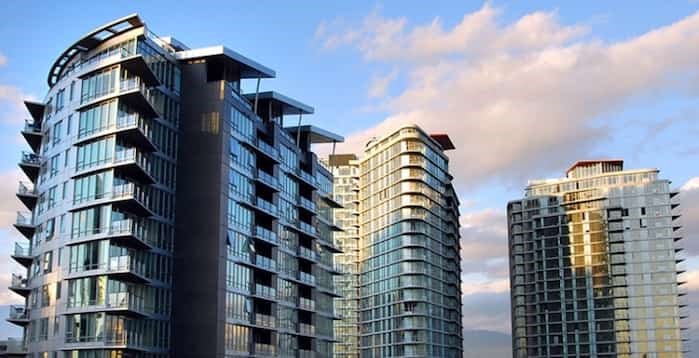The “Rustad Rebate” versus the Eby 60/40 mortgage split. Voters were presented two hugely different proposals on housing affordability in the first week of the B.C. election, as the parties faced off early on one of the top issues in the campaign.
The BC Conservatives and BC NDP each billed their major housing proposals as the best solution to the sticky issue of out-of-reach housing—though they are remarkably different.
The Rustad Rebate, as the BC Conservatives labelled it, would allow British Columbians to write off up to $3,000 a month in mortgage or rent payments on their income tax filing, potentially resulting in an average tax savings of around $1,600 a year, according to Rustad.
“This is one of the most significant tax reliefs that British Columbia has ever given, and certainly the largest tax relief that's ever been given to people who are either renting homes or who are paying their mortgages,” said Rustad.
“We believe in British Columbia that the government should not be taxing your primary issues, like your residence. Government should not be in the way of making sure that people can be able to put a roof over their head.”
The proposal, though, is massively expensive. Although Rustad promised it would be phased in over three years to 2029, have an income eligibility cap of $250,000 and not exceed a $900 million budget hit in the first year, the Rustad Rebate will still nonetheless end up costing $3.5 billion annually once fully in effect.
“One of the biggest challenges we have in this province is because of the fiscal irresponsibility of David Eby and this government,” said Rustad. “We are not going to be able to fully implement it immediately.”
The long shadow of the province’s current $9 billion deficit forecast looms over both campaigns, though especially for the BC NDP, who are the authors of the record red ink.
Perhaps that is why the BC NDP’s housing affordability plan, though ambitious in financial assistance, is limited in scope to only 25,000 people over five years and comes with both income and wealth caps.
The “Opening Doors to Homeownership” plan, as the BC NDP dubbed it, would see the government pay 40 per cent of the purchase price of newly built homes for middle-income families for 25 years.
“The program is expressly linked to a challenge that we face, which is that we need to bring more housing supply into the market,” said Eby.
“This does a couple of things. One, it supports the buyers. But it also encourages those developments to get built. If you just support the buyers and you don’t build more housing, what happens is it increases the cost for everybody.”
Eby before the election, when it was put in place for a single project in 91原创. The final version, expanded provincewide, comes in at $1.29 billion per year, or $6.45 billion over the five years. That’s an average subsidy of $258,000 per unit. Taxpayers will get most of that back, with interest, but it will take almost three decades. In the meantime, it’s a big budgetary hit.
In both cases, the political parties are hoping to hit a wide swath of middle-income swing voters who appreciate the help so much they consider coming out on election day to cast a ballot.
But neither program will make much of a difference in the actual housing market itself. On that front, the BC NDP has more to offer, with attempts to preserve rental stock, incentivize new housing construction, mandate density around transit corridors, encourage secondary suites and allow quadplexes on single-family lots.
Most of the BC Conservative housing platform so far exists in the form of promising to repeal those BC NDP initiatives, as well as scrap restrictions on short-term rental properties like Airbnb. The party will need to come up with more ambitious proposals on the supply side of the equation if it hopes to be taken seriously on the housing affordability file.
For now, at least, there’s two very different housing plans in front of voters. Which one they prefer, and what else is coming on the housing file, could have a major impact on the election results on Oct. 19.
Rob Shaw has spent more than 16 years covering B.C. politics, now reporting for CHEK News and writing for Glacier Media. He is the co-author of the national bestselling book A Matter of Confidence, host of the weekly podcast Political Capital, and a regular guest on CBC Radio.



